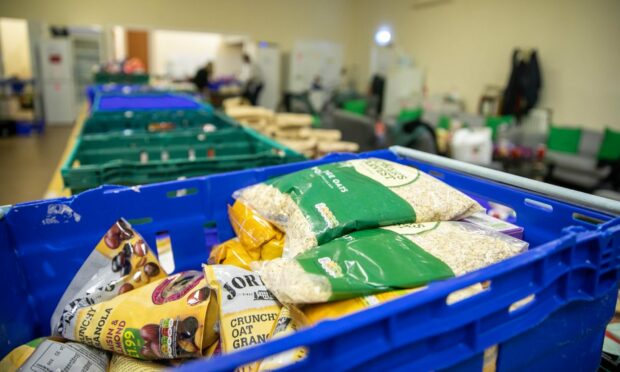Sir, – We are being cajoled to spend, spend, spend to celebrate the festive season, with the real reason for it being forgotten. All very well if you have the wherewithal to do so, but many do not.
We live in, apparently, one of the richest countries in the world, but we still have many thousands homeless and even more resorting to foodbanks to survive. Add to that the perils of the Covid virus and its variants and we are in difficult times indeed.
While by no means affluent, I have a roof over my head and sufficient funds to light and heat it, along with enough food to eat. Millions of people throughout the world are not so fortunate. It is they who should be uppermost in our minds at this time of joy and giving.
Let’s hope 2022 is kinder to us all.
Ron Campbell, Richmond Walk, Aberdeen.
Taking charge of our local affairs
Sir, – In the wake of the announcement by the SNP that they are abdicating financial responsibility to the local authorities, due to their own fiscal incompetence and profligacy, we are told to be prepared for eye-watering council tax rises. This doesn’t have to happen.
Council leaders have a golden opportunity to show that they are aware of the real world, unlike their counterparts in the administration (it’s not a government, it’s only labelled as such) in Edinburgh and that they really have their finger on the pulse of what people actually need and how to make the local economy thrive.
Knee-jerk rises in tax only reduce the amount of spending power in people’s pockets to support local businesses and by extension these businesses then being in a position to pay rates and give employment to local people.
One of the first to feel the chill from less disposable income through tax rises is the hospitality sector and with that the extinction of many local jobs.
Tackle the issue from the other end of the telescope and rather than say how much do we need to keep the current level of local authority employment and services, rather say what are the basic requirements of the population from the local authority.
Roads, waste, education, and housing are a given. However arts, recreation and other fun things can be addressed by local communities. If they want them they will organise them.
Many communities sit back and expect or assume the council “will do something”. Well it could be time for the public to actually get up and do it for themselves as they used to do many years ago.
Stuart Robertson, Barclay Park, Aboyne.
How Scotland can learn from Norway
Sir, – It’s good to read that Norway includes future oil and gas reserves in her “just transition” to net carbon zero. Norway is most definitely a country that Scotland can learn from – a country of Scotland’s size, geography and political leanings aspiring to deliver what’s best for her population.
Scotland, like Norway, is blessed with significant green energy potential and, like Norway, has an aspiration to have a “just transition” from hydrocarbons.
Fortunately we in Scotland know only too well how not to manage transitions – we just need to look at the UK’s closure of Scotland’s coal, steel, shipbuilding and automotive industries.
The signs are not good that the UK Government’s thinking is any different for Scotland’s oil and gas transition – we have already seen them cutting the Aberdeenshire carbon capture project (again), and refusing to match the Scottish Government’s £500 million energy “just transition” fund.
The oil and gas industry is full of highly skilled companies and employees who are preparing for life after oil and gas – as are our schools, colleges and universities.
Governments need to be catalysts of this change – it will not happen by itself. Norway is a small country that understands how to deliver for her people – that can be Scotland too.
Willie Dunbar, Deeside Gardens, Aberdeen.
